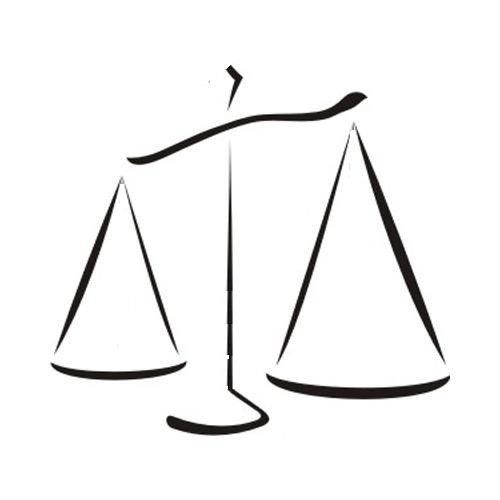Best Bankruptcy & Debt Lawyers in North Macedonia
Share your needs with us, get contacted by law firms.
Free. Takes 2 min.
Or refine your search by selecting a city:
List of the best lawyers in North Macedonia
About Bankruptcy & Debt Law in North Macedonia
Bankruptcy and debt law in North Macedonia is designed to provide a legal framework for resolving financial distress. This encompasses the rights and responsibilities of individuals and businesses that are unable to meet their financial obligations. The legal system aims to balance the interests of debtors and creditors, providing a structured process for the liquidation or reorganization of debts. Bankruptcy proceedings in North Macedonia are primarily governed by the Law on Bankruptcy, which outlines the procedures for filing bankruptcy, managing assets, and distributing them among creditors.
Why You May Need a Lawyer
There are several common situations that might necessitate the expertise of a lawyer in the field of bankruptcy and debt:
- If you are an individual or a business facing overwhelming debt and you need to explore options for debt relief.
- If you have creditors taking legal action against you, a lawyer can help protect your rights and negotiate settlements or payment plans.
- When drafting or responding to a bankruptcy petition, legal expertise is crucial to ensure compliance with local laws and regulations.
- If you are a creditor trying to collect a debt from a bankrupt debtor, a lawyer can assist in protecting your claims and interests during the proceedings.
Local Laws Overview
The key aspects of local laws regarding bankruptcy and debt in North Macedonia include:
- Initiation of Bankruptcy: Either the debtor or creditors can initiate bankruptcy proceedings in the court system. Debtors are required to file a petition if they are unable to pay debts as they become due.
- Role of the Bankruptcy Trustee: A trustee is appointed to manage the debtor's estate, ensure fair asset distribution, and oversee the proceedings.
- Asset Liquidation or Reorganization: Bankruptcy may involve liquidation of the debtor's assets to pay creditors or restructuring the debtor's obligations to enable repayment over time.
- Creditor Claims and Priorities: Creditors must file claims to participate in the bankruptcy process, and the law establishes priorities for the repayment of different types of debts.
- Discharge of Debts: Bankruptcy can result in the discharge of certain debts, freeing the debtor from liability once proceedings are completed.
Frequently Asked Questions
What is bankruptcy?
Bankruptcy is a legal process where a debtor who cannot meet financial obligations to creditors may seek relief from some or all of their debts. In North Macedonia, this process is governed by the Law on Bankruptcy.
How does filing for bankruptcy affect a debtor's assets?
When a debtor files for bankruptcy, their assets are typically managed by a bankruptcy trustee, who is responsible for liquidating non-exempt property to pay creditors.
Who can initiate bankruptcy proceedings?
Both debtors and creditors can file for bankruptcy. A debtor can voluntarily file if they are unable to meet their debt payments, while creditors can file if a debtor has ceased payments.
What is the role of a bankruptcy trustee?
The trustee manages the bankruptcy estate, ensures fair treatment of creditors, and oversees the liquidation or reorganization process.
Are all debts dischargeable through bankruptcy?
No, certain debts like taxes, alimony, child support, and student loans are typically not dischargeable under North Macedonian law.
How long does the bankruptcy process take?
The duration of a bankruptcy case can vary but generally takes several months to a few years, depending on the case's complexity and the type of bankruptcy filed.
Can a creditor continue collection efforts during bankruptcy?
Once bankruptcy is filed, creditors are generally required to stop collection efforts pending the outcome of the bankruptcy process.
What happens to secured debts like mortgages during bankruptcy?
Secured creditors may have rights to the collateral and can pursue repayment or repossession, subject to court agreements.
How does bankruptcy affect a debtor's credit score?
Filing for bankruptcy can significantly impact a debtor's credit score, making it harder to obtain new credit in the future.
Can a business continue to operate during bankruptcy?
Depending on the type of bankruptcy, a business may continue operations while reorganizing, subject to court approval.
Additional Resources
For additional assistance, individuals can seek help from various governmental bodies and organizations:
- Official Gazette of the Republic of North Macedonia: Provides access to legal texts and amendments regarding bankruptcy law.
- Chambers of Commerce: Can offer advice and resources for businesses considering bankruptcy.
- Legal Aid Providers: Various organizations offer legal aid and services for individuals undergoing financial distress.
Next Steps
If you are considering bankruptcy or struggling with debt, it's important to seek legal assistance promptly. Consider the following steps:
- Consult with a Lawyer: Schedule a consultation with a lawyer specializing in bankruptcy and debt; they'll provide tailored advice and explain your options.
- Review Your Financial Situation: Gather all relevant financial documents like loan agreements, asset lists, and income statements for the lawyer's assessment.
- Understand Your Options: Clarify your objectives, whether seeking debt relief or asset protection, and explore available legal remedies.
- Engage in the Legal Process: Follow your lawyer's advice to engage with the legal process, meet all filing deadlines, and attend hearings as required.
Lawzana helps you find the best lawyers and law firms in North Macedonia through a curated and pre-screened list of qualified legal professionals. Our platform offers rankings and detailed profiles of attorneys and law firms, allowing you to compare based on practice areas, including Bankruptcy & Debt, experience, and client feedback.
Each profile includes a description of the firm's areas of practice, client reviews, team members and partners, year of establishment, spoken languages, office locations, contact information, social media presence, and any published articles or resources. Most firms on our platform speak English and are experienced in both local and international legal matters.
Get a quote from top-rated law firms in North Macedonia — quickly, securely, and without unnecessary hassle.
Disclaimer:
The information provided on this page is for general informational purposes only and does not constitute legal advice. While we strive to ensure the accuracy and relevance of the content, legal information may change over time, and interpretations of the law can vary. You should always consult with a qualified legal professional for advice specific to your situation.
We disclaim all liability for actions taken or not taken based on the content of this page. If you believe any information is incorrect or outdated, please contact us, and we will review and update it where appropriate.
Browse bankruptcy & debt law firms by service in North Macedonia
North Macedonia Attorneys in related practice areas.
Browse bankruptcy & debt law firms by city in North Macedonia
Refine your search by selecting a city.











